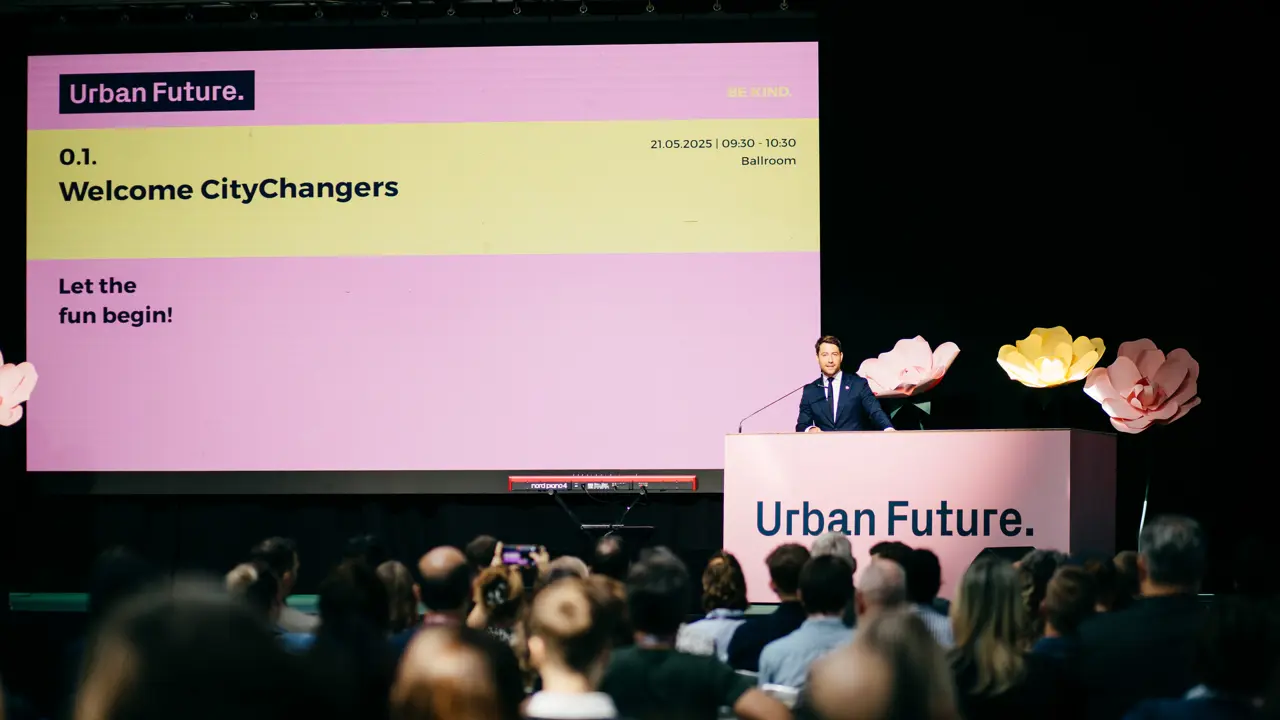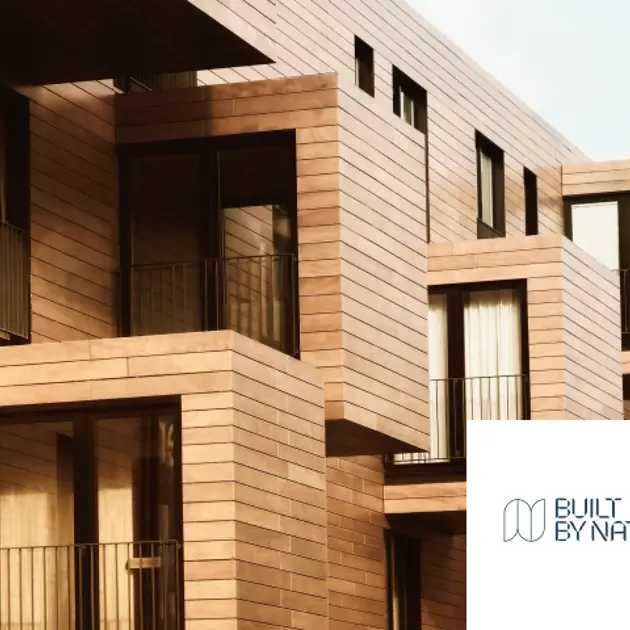Urban Future; aligning climate ambitions with housing needs

At Urban Future 2025 in Łódź, over 30 of our built environment partners gathered to reflect on a priority challenge for Europe: how to deliver housing that is decent, affordable, and aligned with climate goals - and do it in a way that is inclusive and just.
Across Europe, housing affordability is under acute pressure: over 19 million people live in inadequate homes, while 10% of the population is overburdened by housing costs. Meanwhile, buildings account for nearly 40% of emissions. But too often, housing and climate agendas are portrayed as in conflict - and their respective changemakers are working separately, with funders focused on one or the other.

Three takeaways stood out from our time in Łódź, drawn from dozens of discussions with our partners, with city officials, other foundations, advocates and activists, and community leaders:
1. Communities are moving to the centre
While climate targets have driven much of the built environment conversation in recent years, we heard a clear shift: communities are now at the heart of the agenda - especially in the housing track.
Housing is no longer framed simply as a technical or environmental problem. It is increasingly seen as a form of infrastructure, foundational to society and long-term city resilience. Whether through resident-led housing models, organising networks, or local authority pilots, the emphasis is shifting to how people live. Frontrunners in industry - investors and developers - are with us on the journey: new data from the Urban Land Institute's Emerging Trends in Real Estate Europe 2025 survey highlights growing concerns around housing affordability, alongside environmental and social risks.
2. National coalitions are forming
In the UK, France, Spain, Germany, the Netherlands and in Poland, we’re supporting the emergence of national-level housing alliances bringing together a diversity of actors - housing providers, industry innovators, policymakers, financial institutions, media, civil society, and workers’ unions.
These coalitions are actively designing new climate-aligned systems for housing delivery, land governance, and renovation finance. Efforts are beginning to take a more organised form, with shared goals and visible coordination across sectors. Our conversations at Urban Future helped us understand how we can increase our strategic support for these coalitions, through organisational development around fundraising, strategic communications, inclusion work and governance support.
3. Now the need is to scale interventions into the mainstream
A core theme in Łódź was the need to move from one-off interventions to change at the built environment’s whole-system level. Many of the solutions we need are finding roots in cities across Europe, but to mainstream them requires shifting norms, incentives, and power structures through shared narratives, aligned advocacy, and strategic funding to enable cross-sectoral collaboration.
Across the conference, we saw examples of partners working on scaling up solutions:
-
Built by Nature is helping cities adopt bio-based construction through its timber principles, which provide guidance for the sector to shift to low-carbon in a responsible way;
-
Habitat for Humanity’s Empty Spaces to Homes initiative is building investment models to turn vacant properties into affordable housing in the UK, Poland, and Southeast Europe;
-
New Economy Organisers Network (NEON), Climate Action Network and IDRA Barcelona Urban Research Institute and others are working to open policy and planning processes to the voices of residents and workers, ensuring housing systems and low-carbon housing innovation programmes include their end users and wider public;
-
The European Community Land Trust Network is working with developers and investors to scale citizen-led ownership models that prioritise long-term affordability and environmental stewardship;
-
Dutch Green Building Council’s BuildingLife initiative is building consensus for whole-life carbon frameworks in housing, and they have convened industry leaders, municipalities, tenants' associations and many more into an unstoppable coalition that is challenging the mainstream housing vs climate narrative. There are similar coalitions also establishing in the UK (watch the animation, below!), Germany and Spain.
Looking Ahead
Urban Future 2025 reflected a clear picture of what’s emerging: a more people-centred, collaborative, and politically prioritised approach to housing. But it also clarified the work ahead to ensure housing has a just transition, particularly the need to build a shared infrastructure that allows collaboration, amplification and joined-up engagement.
Images courtesy of Urban Future – Adam Slowikowoski & Dagmara Hendzlik
Video courtesy of Rising Tide, UCL Institute for Innovation and Public Purpose (IIPP), Arup, and Dark Matter Labs, Animation by Imaginatrix / Batuhan Bintas


